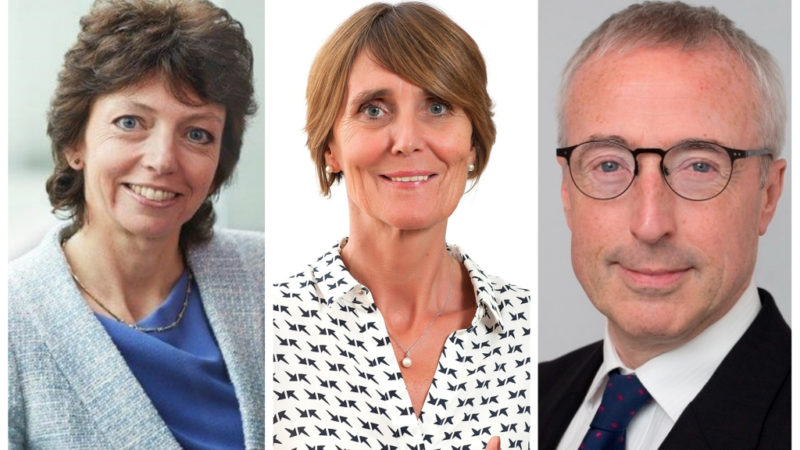Civil Service to clampdown on all-male shortlists
The Civil Service is to become among the most female-friendly employers in the country. Measures announced in the Talent Action Plan include generous shared parental leave and a clampdown on all-male shortlists. The proposals announced by the Minister for the Cabinet Office, Francis Maude, and the Cabinet Secretary and Head of the Civil Service, Sir Jeremy Heywood, in the Government’s Talent Action Plan – removing the barriers to success, which builds on existing work to improve capabilities and talent management in the Civil Service. A central plank of the Government’s ongoing Civil Service Reform programme, the Action Plan sets out to build a world-class Civil Service, fit for the 21st century, where the most talented people succeed and reach the top positions, regardless of gender, ethnicity, sexuality or disability.
The Civil Service’s adoption of the new entitlement to Shared Parental Leave will go far beyond statutory requirements. For the first time, civil servants across government, at all levels, will have the option to split the six months’ full pay usually offered to women for maternity leave.
The move gives parents flexibility around how they share childcare responsibilities and ensures both parents can retain strong links with the labour market.
Among other proposals:
•all-male shortlists for senior recruitment and all-male selection panels will only be allowed in exceptional circumstances
•all departments will nominate board-level diversity champions, with the power to drive change
•all Permanent Secretaries and Directors-General will mentor one or more junior employees
•we will take action to provide women with more tailored support before, during and after maternity leave
•all leaders will be given additional training to remove “unconscious bias” from interviews, to ensure that the most talented are able to progress to leadership positions, regardless of who they are
•and in 2015/16, 400 places – double the current number – will be available on the Fast Track Apprenticeship scheme. This helps the Civil Service reach a broader talent pool by offering an alternative to the higher education route for bright school-leavers. Currently, 16% of applicants to the scheme are from BME backgrounds.
Minister for the Cabinet Office Francis Maude said, " To deliver excellent public services for hardworking families we need the best civil servants. But for too long, too few talented women reached the highest levels. We have examined the actual barriers faced by women and are now addressing them. We are also commissioning further work to ensure that you can succeed in the Civil Service whoever you are - it’s all part of our long-term plan for a stronger economy."
Cabinet Secretary Sir Jeremy Heywood said, "Our Talent Action Plan is designed to ensure that the most talented civil servants, regardless of their background, can progress quickly and fulfil their potential. We will encourage take-up of our generous shared parental leave offer, make sure women are better represented on recruitment boards, and sharpen procedures for identifying and developing our best people."
"The Civil Service already benefits from a more diverse talent pool than many British employers. More than half of all civil servants are women, and more than a third of top Civil Service positions are held by women. But we can do even better."
"Above all, the collective leadership of the Civil Service is committed to creating a truly diverse workforce that delivers the best for Britain."
The Government believes that previous attempts to address diversity and ensure that the very best talent was in place had limited success because they did not deal with the actual issues. For example: why, with the number of women civil servants growing – from 48% in 1998 to 53% today – do they hold only 38% of positions at the top grades; and why are relatively few of the many talented Fast Streamers from minority ethnic backgrounds promoted to the higher grades?
The solution, says the Talent Action Plan, is first to understand the barriers certain groups continue to face and then set about removing them. That is why the Government has commissioned the most comprehensive research to date into the challenges facing four groups: women; ethnic minorities; lesbian, gay, bisexual and transgender communities; and the disabled, and why they continue to be underrepresented, particularly at senior leadership grades. The first report, by the Hay Group, examining the blockages preventing women from reaching the most senior levels of the Civil Service, is published alongside the Action Plan, which draws on many of its recommendations.




